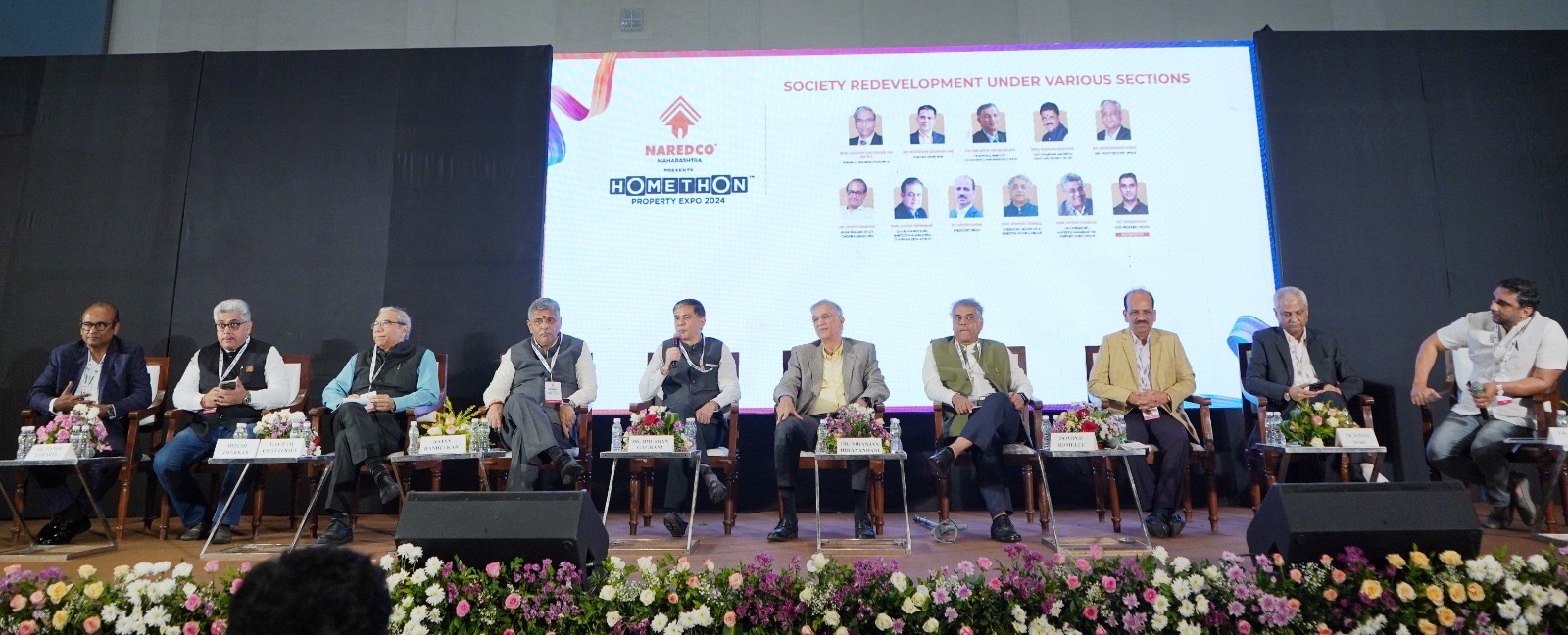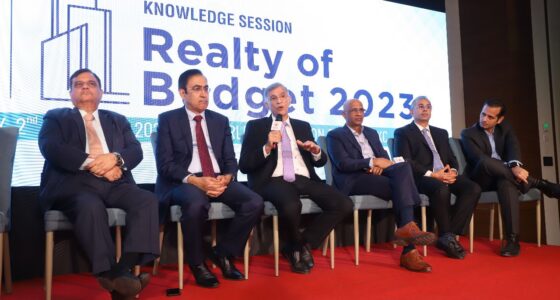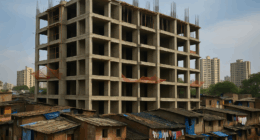As old buildings across the Mumbai Metropolitan Region (MMR) await redevelopment, Dr. Bhushan Gagrani, Commissioner of the BrihanMumbai Municipal Corporation (BMC), emphasized the urgent need for sufficient housing stock. Speaking at a panel discussion titled “Society Redevelopment under Various Sections” during the HOMETHON Property Expo 2024 at the Jio World Convention Centre, he highlighted that public-private partnerships could provide a compliant pathway for redevelopment.
In response to calls from the real estate industry to reduce premiums on redevelopment projects, Dr. Gagrani stated that various avenues for redevelopment could be effectively structured with proper feasibility studies. He underscored the importance of incentivizing redevelopment while noting that such incentives should not compromise financial feasibility. “For any redevelopment project to succeed, it must be financially viable, and society members must be educated about the redevelopment process,” he said.
Discussing the BMC’s vision for infrastructure development amidst rapid redevelopment, Dr. Gagrani acknowledged potential challenges. He pointed out that while surface infrastructure, such as urban mobility and road quality, is being planned, subsurface infrastructure like sewage and water supply could face significant pressure as the city’s population increases.
The Commissioner also mentioned that Section 33(7A), which applies to the redevelopment of dilapidated and unsafe buildings, has garnered a positive response from private societies, leading to competitive bidding from developers.
Shri Gautam Chatterjee, former founding chairman of MahaRERA, stressed the necessity of balanced incentives for redevelopment. He noted that around 8,000 projects in Mumbai are stalled due to timeline issues, calling for greater dissemination of knowledge regarding redevelopment processes. He advocated for a web portal to provide transparent information to stakeholders, as well as e-monitoring methods and an Alternative Dispute Resolution system for stalled projects. Chatterjee proposed the creation of a Self-Regulated Organization (SRO) to facilitate self-regulation within the sector.
Dr. Niranjan Hiranandani, Chairman of NAREDCO and co-founder of the Hiranandani Group, echoed the need to reduce premiums on redevelopment to make housing more affordable. He argued that a 50% reduction in premiums is necessary to match the pace of redevelopment and improve quality of life.
Rajan Bandelkar, Vice Chairman of NAREDCO, highlighted the importance of balancing viability for the private sector in redevelopment projects. He urged the government to incentivize societies that undertake self-redevelopment and consume less Floor Space Index (FSI), stating that those using lesser FSI should not face any premium, particularly in light of climate change challenges.
Hitesh Thakkar, Vice President of NAREDCO Maharashtra, called for a framework to resolve disputes amicably to avoid project delays and high litigation costs.
The discussions at the expo underscore a collaborative effort among stakeholders to navigate the complexities of redevelopment in Mumbai, aiming to enhance housing availability and infrastructure development through informed policies and partnerships.









